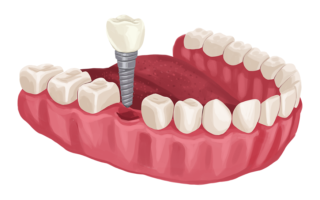When it comes to dental care, there are various types of dental professionals with different areas of expertise.
Two common specialists that patients may encounter are dentists and root canal specialists. While both are dental professionals, they differ in their training, education, and the type of dental care they provide.
In this article, we’ll explore the key differences between a dentist and a root canal specialist.
Dentists: General Oral Health Care Providers
Dentists are oral health care providers who specialize in the diagnosis, prevention, and treatment of various dental conditions.
They are responsible for maintaining the overall oral health of their patients, which includes routine checkups, cleanings, and basic dental procedures such as fillings, extractions, and crowns.
Dentists are also trained to identify and treat various oral health problems such as gum disease, tooth decay, and oral cancer.
Dentists have typically completed four years of undergraduate study, followed by four years of dental school to earn a Doctor of Dental Surgery (DDS) or Doctor of Dental Medicine (DMD) degree.
During their training, dentists learn about various aspects of oral health, including anatomy, physiology, pharmacology, radiology, and dental materials.
They also gain experience in performing various dental procedures under the supervision of licensed dentists.
Root Canal Specialists: Endodontists
Endodontists are dental specialists who focus on treating the innermost part of the tooth, known as the pulp.
The pulp contains nerves and blood vessels that are responsible for supplying nutrients and oxygen to the tooth.
When the pulp becomes infected or damaged, it can cause severe pain and discomfort, and if left untreated, can lead to tooth loss.
Endodontists are experts in performing root canal therapy, a procedure designed to remove the infected or damaged pulp from the tooth and replace it with a filling material.
They also specialize in treating traumatic dental injuries, such as cracked or fractured teeth, and performing surgical procedures such as apicoectomy (removal of the tip of the tooth root).
To become an endodontist, a dentist must complete an additional two to three years of specialized training in endodontics after dental school.
During this training, they learn advanced techniques and technologies for performing root canal therapy and treating complex dental problems.
Key Differences
While both dentists and endodontists provide dental care, they differ in several ways. Here are some of the key differences:
Education and Training:
Dentists complete a rigorous educational program, which includes undergraduate study and four years of dental school.
During dental school, they receive training in all aspects of general dentistry, including diagnosis, prevention, and treatment of dental conditions.
After completing their dental degree, some dentists may pursue additional training in a specialized area, such as endodontics.
Endodontists, on the other hand, complete two to three years of additional training after completing their dental degree.
This training is focused on endodontics, which includes the diagnosis and treatment of dental pulp and nerve-related conditions.
This additional training allows endodontists to become experts in performing root canal therapy and other specialized procedures.
Areas of Expertise
Dentists are general dental practitioners who can provide a wide range of dental services. This includes preventative care, such as routine cleanings and exams, as well as restorative care, such as fillings, crowns, and bridges.
They also provide cosmetic dental services such as teeth whitening, veneers, and orthodontics.
Endodontists, on the other hand, specialize in treating dental problems related to the innermost part of the tooth.
This includes the pulp and nerve tissues, which can become infected or damaged due to decay, trauma, or other causes.
Endodontists are experts in performing root canal therapy, which is a common procedure used to treat pulp-related problems.
They also specialize in treating traumatic dental injuries and performing surgical procedures such as apicoectomy.
Scope of Practice
Dentists provide a broad range of dental services, while endodontists focus on a specific area of dentistry.
While dentists can perform root canal therapy and other endodontic procedures, they may refer patients to an endodontist if the case is complex or requires specialized expertise.
Endodontists, on the other hand, have a more limited scope of practice, focused primarily on endodontic procedures.
They work closely with general dentists and other dental specialists to ensure that patients receive the appropriate care for their dental needs.
Equipment and Technology
Endodontists use specialized equipment and technology to perform root canal therapy and other procedures.
This includes operating microscopes, digital radiography, and other advanced diagnostic tools.
This equipment allows endodontists to diagnose and treat dental problems more accurately and effectively.
Dentists also use a variety of equipment and technology to provide dental care. This includes dental drills, X-ray machines, and other diagnostic tools.
However, the equipment and technology used by dentists may be less specialized than that used by endodontists.
Diagnosis and Treatment
Dentists are trained to diagnose and treat a wide range of dental problems, including cavities, gum disease, and oral cancer. They also provide restorative services such as dental fillings, crowns, and bridges.
In addition, they can perform cosmetic procedures such as teeth whitening and orthodontics.
Endodontists, on the other hand, are specialists in diagnosing and treating problems related to the dental pulp and nerves. These may include toothache, sensitivity to hot or cold foods, and swelling in the gums.
Endodontists are skilled in performing root canal therapy, which involves removing the damaged pulp and nerves from inside the tooth and filling the empty space with a special material.
While both dentists and endodontists can perform root canal therapy, endodontists have specialized training in this procedure and can often handle more complex cases.
They also have expertise in treating traumatic dental injuries and performing surgical procedures such as apicoectomy.
Patient Care
Both dentists and endodontists are committed to providing high-quality patient care. Dentists typically see patients for routine checkups and cleanings every six months, while endodontists often see patients on a referral basis for more specialized treatment.
Dentists may work with a team of dental hygienists, assistants, and administrative staff to provide comprehensive care.
They also focus on educating their patients about proper oral hygiene practices and how to prevent dental problems.
Endodontists may work closely with general dentists, as well as other dental specialists such as orthodontists and periodontists.
They may also work with other medical professionals to provide integrated care for patients with complex medical conditions.
Costs
The cost of dental care can vary widely depending on the type of treatment needed, the location, and the dentist’s level of experience.
Generally speaking, endodontic treatment is more expensive than routine dental care due to the specialized training and equipment required.
While dental insurance can help offset the cost of some procedures, not all insurance plans cover endodontic treatment.
Patients may need to pay out of pocket for some or all of the cost of root canal therapy or other specialized procedures.
Final words
While dentists and endodontists are both dental professionals, they differ in their education, training, and areas of expertise.
If you have a dental problem that requires root canal therapy or other specialized care, your dentist may refer you to an endodontist for treatment.
However, for routine oral health care, such as cleanings and fillings, your dentist is the primary dental care provider.




